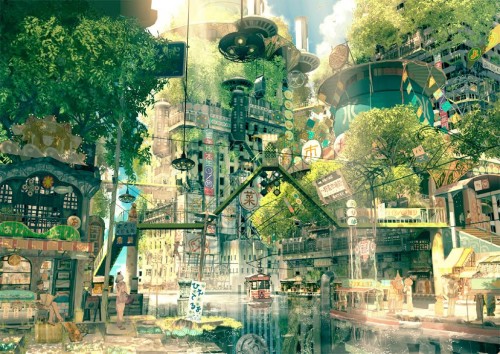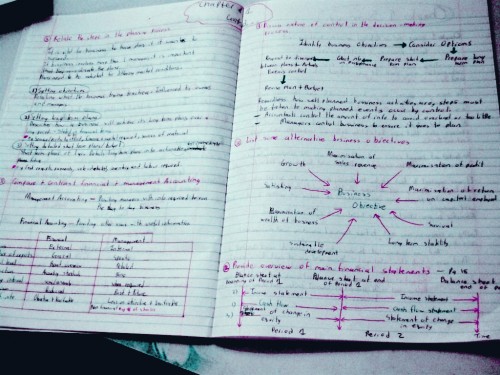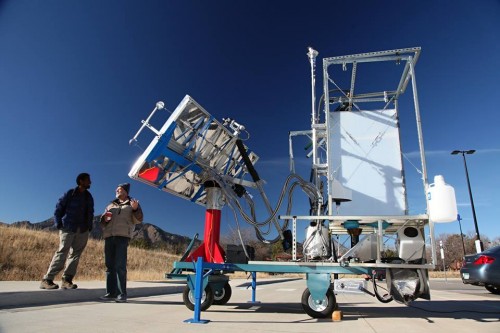“It’s hard out here for futurists under 30. As we percolated through our respective nations’ education systems, we were exposed to WorldChanging and TED talks, to artfully-designed green consumerism and sustainable development NGOs. Yet we also grew up with doomsday predictions slated to hit before our expected retirement ages, with the slow but inexorable militarization of metropolitan police departments, with the failure of the existing political order to deal with the existential-but-not-yet-urgent threat of climate change.
Many of us feel it’s unethical to bring children into a world like ours. We have grown up under a shadow, and if we sometimes resemble fungus it should be taken as a credit to our adaptability. We’re solarpunks because the only other options are denial or despair. The promises offered by most Singulatarians and Transhumanists are individualist and unsustainable: How many of them are scoped for a world where energy is not cheap and plentiful, to say nothing of rare earth elements?
Solarpunk is about finding ways to make life more wonderful for us right now, and more importantly for the generations that follow us – i.e., extending human life at the species level, rather than individually. Our future must involve repurposing and creating new things from what we already have (instead of 20th century “destroy it all and build something completely different” modernism). Our futurism is not nihilistic like cyberpunk and it avoids steampunk’s potentially quasi-reactionary tendencies: it is about ingenuity, generativity, independence, and community.
Read more:
Thanks to Edwin Gardner.









